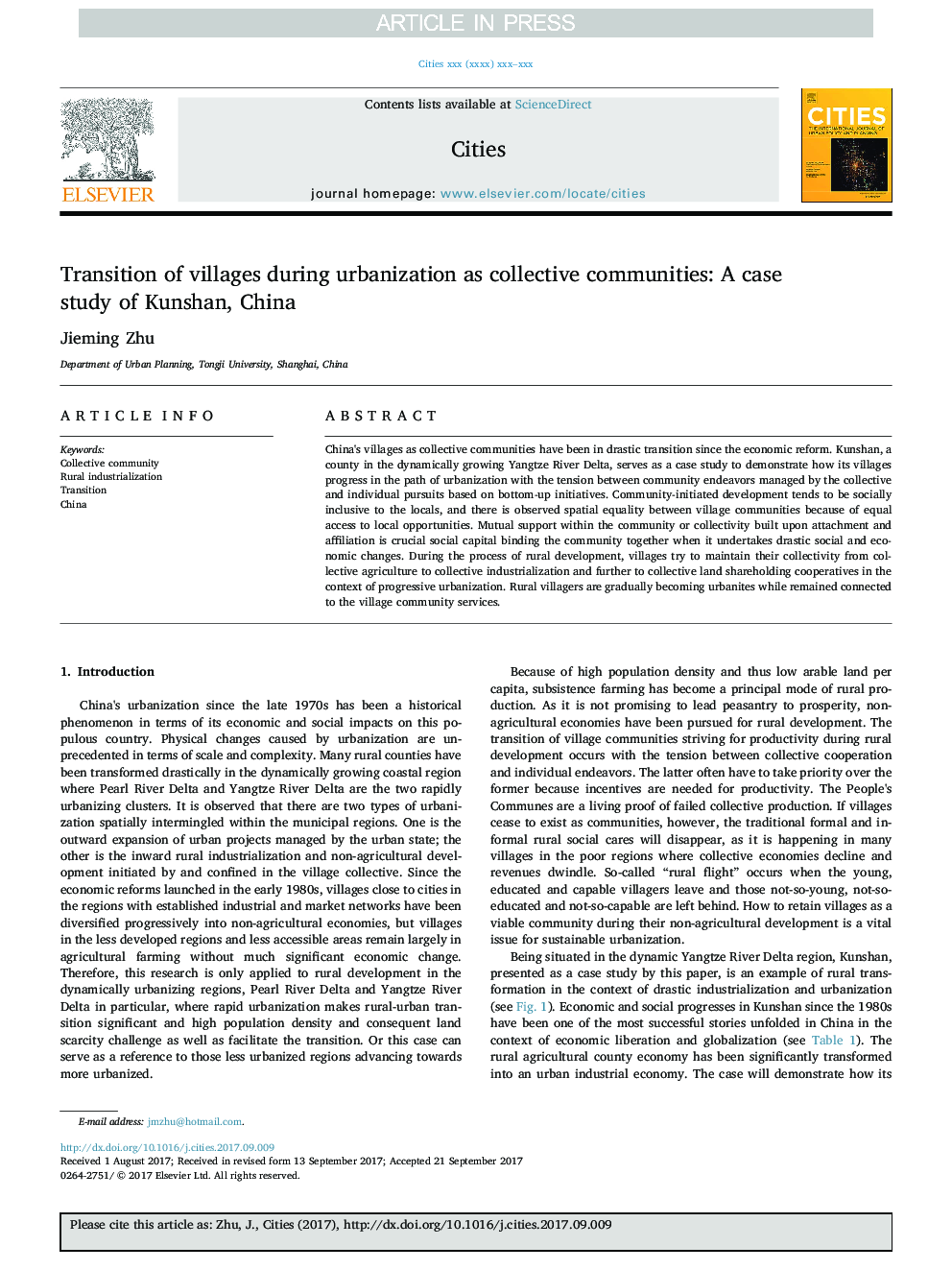| Article ID | Journal | Published Year | Pages | File Type |
|---|---|---|---|---|
| 7417756 | Cities | 2018 | 9 Pages |
Abstract
China's villages as collective communities have been in drastic transition since the economic reform. Kunshan, a county in the dynamically growing Yangtze River Delta, serves as a case study to demonstrate how its villages progress in the path of urbanization with the tension between community endeavors managed by the collective and individual pursuits based on bottom-up initiatives. Community-initiated development tends to be socially inclusive to the locals, and there is observed spatial equality between village communities because of equal access to local opportunities. Mutual support within the community or collectivity built upon attachment and affiliation is crucial social capital binding the community together when it undertakes drastic social and economic changes. During the process of rural development, villages try to maintain their collectivity from collective agriculture to collective industrialization and further to collective land shareholding cooperatives in the context of progressive urbanization. Rural villagers are gradually becoming urbanites while remained connected to the village community services.
Related Topics
Social Sciences and Humanities
Business, Management and Accounting
Tourism, Leisure and Hospitality Management
Authors
Jieming Zhu,
